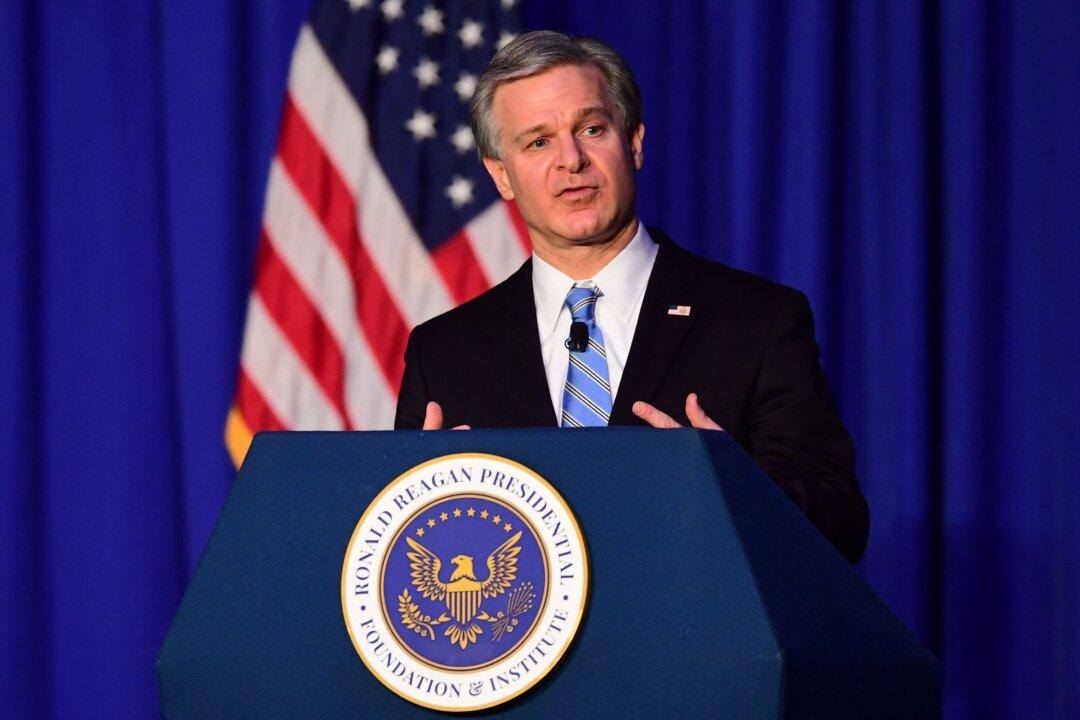The FBI’s top official has defended the bureau against critics who say its more aggressively pursuing people who committed crimes on Jan. 6, 2021, compared with people who torched buildings and carried out other illegal acts during the riots in 2020.
The FBI has opened hundreds of investigations and made hundreds of arrests involving each matter, Director Christopher Wray said during a Jan. 31 talk. The bureau has also utilized nearly all of its 56 field offices and its Joint Terrorism Task Force to investigate both the Jan. 6 breach of the U.S. Capitol and the 2020 riots.





